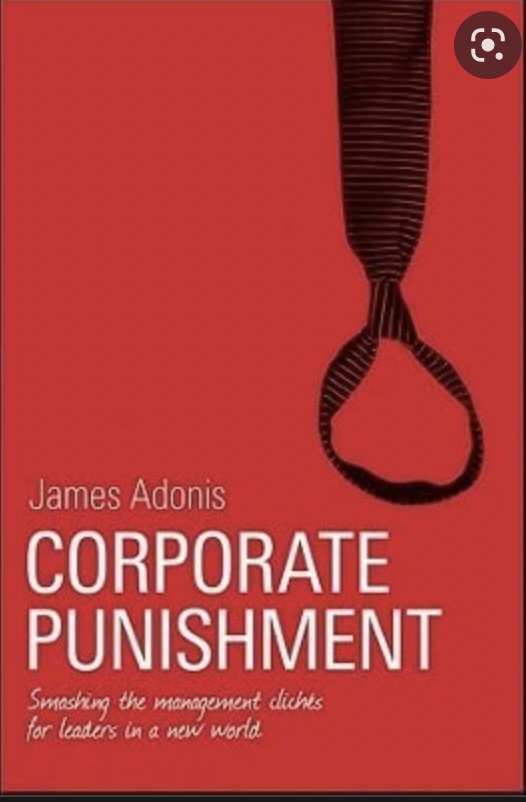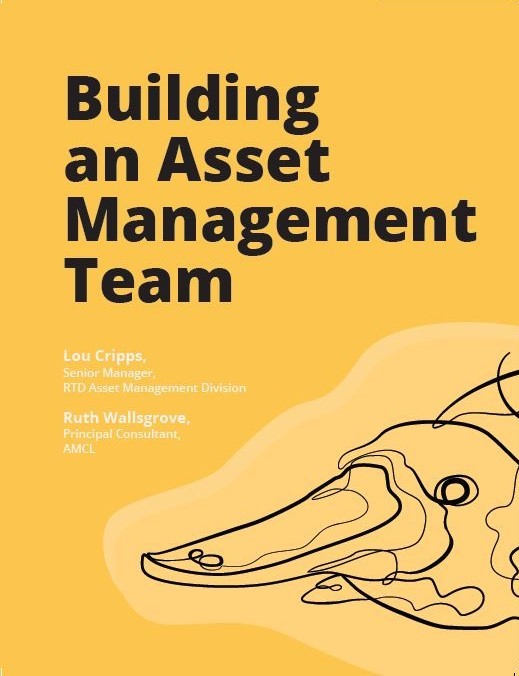
With the beginning of a new year, most of us are thinking about what we plan to do in 2023 – we consider our aims, objectives, goals and targets.
I am reminded of a conversation, some years ago, between Françoise Szigeti, who was then Vice President, International Centre for Facilities, Ottawa, Canada and Helen Tippett, then Emeritus Professor, Faculty of Science, Victoria University, New Zealand.
Françoise observed that the same words tended to be used to convey totally different meanings, and Helen came up with the following that she uses to help her students keep the meanings straight.
- “You AIM for the stars.
- Your OBJECTIVE is to land on the moon.
- Your GOAL is to build a rocket with enough fuel to get you there at an affordable cost.
- Your TARGET is be ready to launch in two years.”
Got It?

Yes, it may be frantic now as we try to finish up all those things we promised we would have done ‘by the end of the year’, but soon it will be Christmas and, hopefully, we can relax and catch up on reading more, as we also promised ourselves, but didn’t get done.
If this sounds like you, may I recommend a book that will have you laughing as well as learning? In “Corporate Punishment”, James Adonis, takes apart 38 of the most common – and most annoying – business clichés, such as ’employees are our greatest asset’, ‘think outside the box’, ‘pick the low hanging fruit’, and the ever-present but abysmally misleading ‘what gets measured, gets done’. At the very least, you will avoid the embarrassment of using them yourself.
The cleverness of the cover illustration encouraged me to pick this up and start reading and after that, the author kept me going until the very last page. I don’t know about you, but it is the rare book I read right through to the end nowadays, so this is a rare recommendation.
AM Clichés?
Reading these general business clichés reminded me that we have our own in asset management – perhaps the leading one being ‘there are no votes in maintenance’. If there were a book of AM Clichés, what clichés would you suggest should be included?

What is a better question?
The tag line for Talking Infrastructure is ‘generating better questions’. Ruth’s brilliant last post reminded me that I had never defined a ‘better’ question. So let’s do that.
Very briefly, a ‘better’ question is one where the answer creates new information, or in the words of Michael Port (Heroic Pubic Speaking) it’s a question that Google can’t answer!
More than that, it generates new capability, allowing us to do new things, or old things in a better way.
Are these ‘better’ questions?
The first volume of our story of Asset Management, ‘Asset Management as a Quest’ consists of a search for the answers to the following series of questions. (You can read Part One of this volume – and our search for answers to the first two of these questions – here)
1: How much does it cost South Australians to get their water services?
2: What is the likely cost and timing of renewing water assets?
3: What is the cost and timing of renewal for all state infrastructure: Public Housing, Hospitals, Schools and Colleges, Highways,Transit, Power and Water?
4: What can be done to contain costs?
5: How do we instill an AM mindset?
6: How do we spread the word about asset management and its benefits?
7: What are the consequences if AM is not understood?
8: Are our tools and data up to the challenges we now face?
9: How do we advance the narrative but also keep it focused?
10: How did NSW move the story forward and what can we learn from its actions?
Your View
Q: Are these ‘better’ questions? Why or why not?
Q: What other questions were being considered in this early perid of our history (1984-1993)?
Asking Questions
And, if you would like to know more about question asking, here are two great books
‘Questions are the Answer’ by Hal Gregersen, and
‘Curious’ by Ian Lewis (recommended by Lou Cripps after reading Ruth’s post)

In writing Building an Asset Management Team, Lou Cripps and I looked at the skills an effective Asset Management team requires – both technical and business understanding, good grasp of front-line experience, both system and structured thinking, a longer term perspective, emotional intelligence and communication skills, embracing uncertainty and the tools to think about risk, integrity, and enough leadership ability to get others to buy into a new way of working.
Good infrastructure Asset Management requires a tricky combination of attributes.
Lou came up with the image of the platypus, that is very rare and not to be found on most continents.
Instead of searching for an amphibious, duck-billed, otter-footed, egg-laying, venomous mammal that locates prey through electroreception, it’s easier to provide all the qualities we need through a complementary team.
But we still love platypuses. Watch out for more of them in the next ten days!

When I managed a small subsidiary company in the 1990s, I read a book by ex ICI chair John Harvey Jones on values. He said – and I am paraphrasing wildly – that any useful organisational value must have an opposite which would work in other circumstances, otherwise it’s so much mom-and-apple-pie stuff you can’t disagree with, but which does not motivate or drive very much, either.
When my team tried articulating our collective values, we all agreed on loyalty – which the marketing men said was not an appropriate marketing slogan, so I knew we were on to something. What could be (in other contexts) a useful opposite? Impartiality, for example. Loyalty was something we felt, and it also turned out to be something our clients could feel (and appreciate). Someone else could contribute impartiality.
As we face a puzzling current widespread refusal of North American infrastructure agencies to set clear SMART targets, we have wondered aloud if it’s because they don’t want anything they could fail at. I begin to wonder if it’s worse than this, a lack of clear purpose or value at all.
I think I have just spotted the worst yet: a transportation agency that’s adopted ‘We Make People’s Lives Better’. Their top leadership are very proud of it, since who doesn’t want to Make People’s Lives Better? The detail of what counts as better, which people, how we will do this – and what we do if one lot of people want something that would adversely affect another group of people? Well, don’t be negative, we can work that all out later. (And don’t even bring up all the critiques of naïve utilitarianism.)
Do we want a bus company to ‘make our lives better’, or do we just want them to concentrate on running an efficient and comfortable bus service?
For the moment, we asset managers can play the game of what, if anything, would not fit under this rhetoric. How could it even in theory rule out a bad option?
Yeah, it was a high-priced consultancy that facilitated this, but why does this even feel right to the executive, apart from being a meaningless feelgood statement?
Is it a triumph of the marketing men, or a complete dereliction of duty?

Every infrastructure project causes damage – to society, to the environment. We know this. A new road means loss of green space. It disrupts existing commerce and communities. Steel and cement are toxic to the environment. We accept this damage as a necessary cost of achieving a larger community good.
For too long, we have accepted this ‘larger community good’ to be the short term jobs that are created. But as shown in the last two posts, not only is this jobs gain illusory, it causes its own damaging distortions in the economy. Construction workers might gain, but other workers lose.
So if we are to support a new infrastructure project it must be because of the greater, ongoing benefits that the infrastructure will provide – after it has been constructed. For evidence based decision making, this is where we must seek our evidence.
How do we do this? What sort of evidence should we seek?

How often do you see arguments such as that spending, say, $100m will create Y,000 jobs? Rarely do we even question the logic, let alone the arithmetic. But we should do both. For if inserting $100m into the economy creates jobs – and it does! – then it must be equally true that extracting $100m reduces jobs. It follows that if the Government is running a balanced budget, then money into the economy through government expenditure is equal to money taken out of the economy through taxes to finance this and there is no net increase in jobs. The situation is worse if the Government is aiming at a budget surplus, for then more jobs are lost than are created.
The jobs created are nicely gathered together and visible for the project at hand, they are even amplified by media exposure, but what you don’t see are the jobs that are lost, for these are spread across the economy.
Let’s face it, to keep its budget under control it will either have to cut back on other expenditure or raise taxes and charges. (Think back to the last ‘stimulus’ bill, is that not what happened a year or so later? The government encouraged construction then later reduced funding affecting maintenance amongst other things.)
And as to the secondary round of expenditure – by which those receiving the first tranche of largesse are expected to go out and spend, thus creating more jobs, what about the secondary effects of the jobs that are lost?
Yes, we want to believe that we are making the world better by building infrastructure and creating jobs but are we in danger of letting wish fulfilment overcome logic?
Moreover, when we are losing jobs all over the country in order to put up a new infrastructure project, how can we be sure that we are gaining, in real community benefit terms, more than we are losing? Maybe we are not?

Sorry for long absence, I’m not dead, just been otherwise engaged. I am currently writing ‘The story of Asset Management: the first ten years’ (1984 – 1993) and as I read back through my old journals, it is easy to see why asset management has captivated me for so long and I thought some of the stories might captivate you, too. For example, try this:
1988 Scene: NSW Parliament House
In 1988 I attended a very heated debate on accrual accounting presented at the NSW Parliament House for elected members and selected others. It was memorable for a fight that almost broke out in the house. After much discussion on the pros and cons, one section of the audience was showing considerable disquiet. Eventually one of the group, a politician, stood up and angrily and loudly stated “If you reveal accrued liabilities we will be forced to do something about them”.
At this, the accounting professor on the platform, Bob Walker, replied neutrally “Accrual Accounting is simply an accounting system, it provides information, what you do with the information is up to you”. This was too much for the highly agitated politician who shouted “You’re just like Pontius Pilate, washing your hands of the whole affair”. Cheers broke out from that section of the audience.
What can we learn from this?
Now the academic was correct, if naive. It is true that accounting systems provide information that enable but do not enforce action. However awareness of information can be a propelling force to action, which the politician instinctively recognised. It is the old ‘ignorance is bliss’ argument, if no-one knows something needs to be done, then you cannot be blamed for not doing it. Once the facts are in the public domain, though, they may be far more difficult to ignore.
The information we develop as asset managers also presents imperatives to action – after all that is why we research, analyse and develop it. So we must be prepared for, and learn how to deal with, reactions like that of our angry politician and not go into the fray unaware. Yet how many times do we do precisely that?
The way in which our data or facts are presented is important, too. There may be no difference – in point of fact – between the glass that is half empty and the one that is half-full but the connotations are widely different. The truth is that facts can never ‘speak for themselves’. The language they speak and the message they give depends crucially on the way they are organised and presented. And this organisation and presentation is what politics is all about – influencing reactions. This is as true of internal, departmental politics as it is of larger scale national and international events.
We have developed a poor habit: decrying something as ‘just politics’ as if by doing so we can ignore it. But everything is politics! Better to learn how to play the game. That is, the game of presenting our information in such a way that the reaction we get is the one that we want.
It doesn’t happen by accident.

Building an Asset Management Team is now available as print on demand – a glossy paperback – from Amazon. All proceeds to Talking Infrastructure.
“A practical and lively guide for anyone who needs to do infrastructure Asset Management. It tackles who you need and why you need them.”
“This should be a pocketbook series” – Tina Ignat, Chicago METRA RailRoad
“It isn’t like anything I have ever read on asset management. I wish it was available when we started out on our AM journey!” – Krista Halayko, Manitoba Hydro

Hello Ruth,
We are currently working to justify the spend for improving our AM program. We would like to utilize other utility benchmarks for efficiency, productivity & other improvements from Asset Management implementation. We would use this to estimate what monetary value we can expect from improvements to operations. Thanks!
Joe.
Dear Joe,
Always glad to hear from you, and we can send you the benchmark data we have.
However… looking to long-term, integrated, whole life cost-based Asset Management for short term operational savings is maybe not the place to look for benefits, unless you can already see inefficiencies in maintenance spending. Thinking more in terms of planned, proactive maintenance rather than depending on reactive maintenance may save a lot of trouble, but it is not guaranteed to save on budget. The benefits of being more proactive are more likely in terms of better customer service and managing risks so they do not cause you issues down the road.
Asset Management might be more realistically promoted as better customer service with the limited resources an organisation has; optimising effort so you target capital where it is really needed (and not wasted where it is not needed); better community, regulator and government trust in the capability to deliver what is required now and into the future.
That an organisation seeks immediate operational savings can be a symptom of pre-Asset Management thinking – thinking in terms of today’s budgets rather than service, risk & the longer term. The problem is that people may not see that poor customer performance, stakeholder mistrust and high risks actually do cost a lot of money, but they aren’t always accounted for. (Until, suddenly, in a crisis, it’s obvious how very much they cost…)
Happy to support in any way we can – I hope this might be useful!
Warm wishes
Ruth
Benefits of good Asset Management can include higher profits and share value, lower insurance premiums, getting out of a catastrophe intact – but does it ever save on next year’s budget?
Maybe through analysing the data and realising how inefficient you are – anyone actually done this?
And – while we’re asking – did anyone ever save money on implementing a work management IT system (as opposed to making it easier to organise maintenance tasks)?

Recent Comments